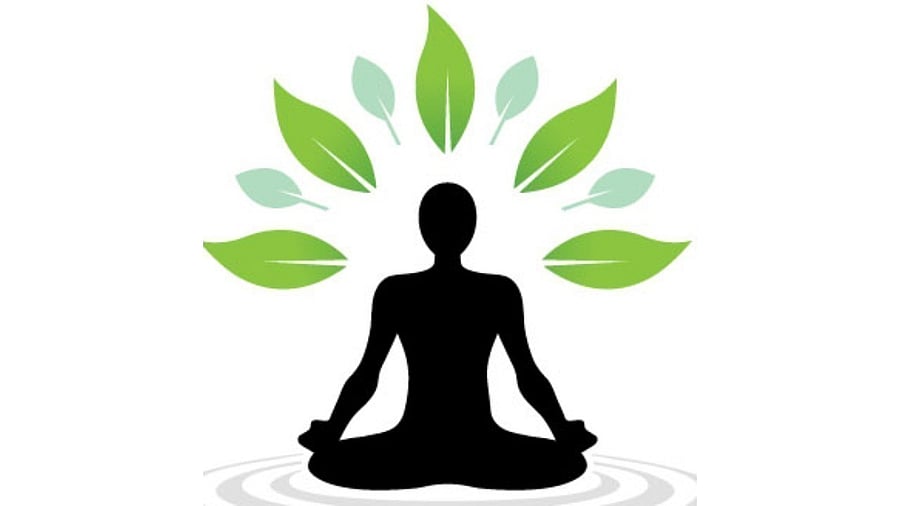
Oasis logo
Credit: DH Illustration
The effect of lifestyle on physical health and well being is a much discussed subject in today’s world. Obesity, metabolic disorders and so many other conditions are all identified as outcomes of poor lifestyles, such as lack of physical activity, lack of proper sleep, high calorie but nutrient deficient food, prolonged exposure to electronic devices and so on.
Ironically, on the other hand, there is immense awareness about health improvement and wellness with activities like yoga, running, gym workouts etc., being commonplace. But what is lesser known is about the effect of lifestyle on inner well being. And it is on this aspect that the Bhagavad Gita speaks in its chapter on Dhyana or meditation.
Though the Gita speaks about those engaging in the Yoga of meditation with higher spiritual goals and attainments, there is much to learn for lesser mortals too, immersed as they are in their humdrum, mundane lives. “Those who eat too much, those who eat too little, those who sleep too much and those who sleep very little- for such persons, this yoga of meditation is not possible” says the Gita.
Before going further, it would be relevant to remember that the Gita points out that meditation is one- pointedness of the mind on any spiritual or philosophical subject while restraining it from turning towards worldly matters, which gradually leads to mental cleansing of the accumulated undesirable tendencies(Vasanas) and clarity of thought. Eating too much obviously causes laziness and has a soporific effect.
Also, as Swami Chinmayananda beautifully puts it, eating is not only oral intake of food, but also what we take in through our sense organs like the eyes, ears, nose etc. These sensory inputs also are food for the mind to stray from its intended goal of stilling and pinning it on a specific subject. Eating too little also leads to tiredness and prevents the mind from concentrating.
Sleeping too much makes one lethargic, reducing the vitality much needed for meditation. Too little sleep makes one tired and causes mental fogginess, again a hindrance for meditation. Continuing, the Gita says restraint and control over all activities, be it eating, sleeping, sensory enjoyments among others leads to a state of mental equanimity and poise, which is the first step in meditation. “Do not burden your body with excessive indulgences, exercise control over your senses, lead a life of restraint and balance” advocates the Gita. Indeed, food for thought!